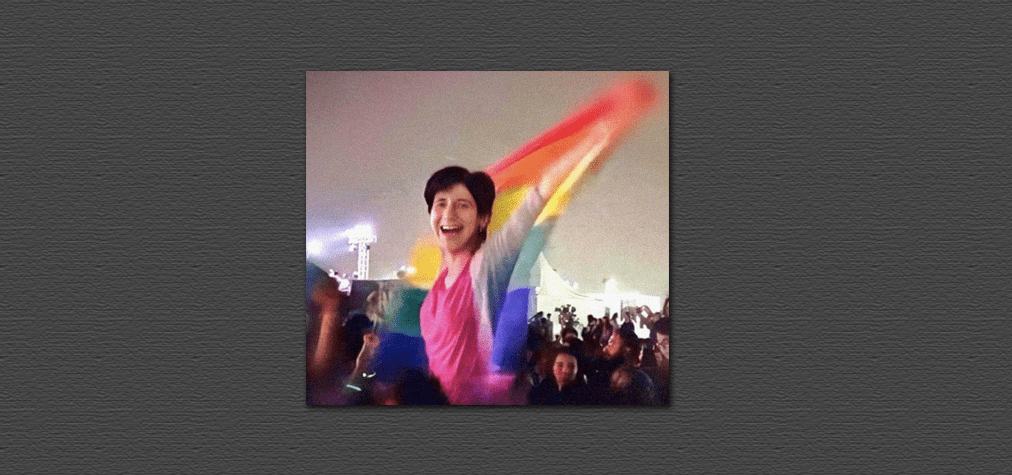The world lost yet another activist, LGBTQ+ rights advocate Sara Hegazy, because she showed her true colors in a conservative society that feared the change she represented.
Hegazy died by suicide in Canada, where she had been forced into exile for the past two years, after raising a rainbow flag in Egypt during a Mashrou’ Leila concert in October 2017. Before her exile, she was arrested by Egyptian authorities for “promoting sexual deviancy and debauchery” and spent three months in prison.
She continued to suffer from post-traumatic stress disorder and depression following her release from prison, where she said she was tortured through violentl assaults and electrocution. Other prisoners, according to Hegazy, were incited by authorities to beat and grope her.
“Prison killed me. It destroyed me,” she told NPR.
The Egyptian government is what killed Sara Hegazy
Rather than saying that Sara Hegazy committed suicide, we must acknowledge that she died by suicide at the bloodied hands of the Egyptian government.
Hegazy’s death brought out an outburst of sadness and anger from the LGBTQ+ community and its allies, met in stark opposition by the ridicule and laughter of those who do not accept her outspoken difference.
Since waving the flag, she had been subjected to humiliation at the hands of state-aligned media and religious institutions but Hegazy is one of many outspoken queer advocates who have been persecuted by Egyptian –and other Arab– authorities.
“We were proud to hold the flag. We wouldn’t have imagined the reaction of society and the Egyptian state. For them, I was a criminal –someone who was seeking to destroy the moral structure of society,” she told NPR.
Every once in a while, authorities crack down on the LGBTQ+ community –which they associate with foreign funding and compare to terrorist threats.
Similar to Lebanon, no law technically criminalizes homosexuality in Egypt but the government prosecutes LGBTQ+ individuals on the basis of a vague law (Law 10/1961) that considers prostitutes and debauchery a criminal office and carries up to three years in prison followed by another three year of supervised release.
Sara Hegazy dared to be herself
Sara Hegazy showed great strength and courage, seeking acceptance and a new beginning while carrying a heavy burden. In the handwritten note she left behind, she asked for forgiveness from her loved ones and granted forgiveness to the world.
“To my siblings –I tried to find redemption and failed, forgive me. To my friends –the journey was harsh and I am too weak to resist it, forgive me,” reads the Arabic note. “To the world –you were cruel to a great extent, but I forgive.”
In the circulating photo where she holds up the pride flag, Sara Hegazy looks unequivocally happy. She raises the flag behind her back with confidence, eyes crinkled and smiling wide. Without any context, the photo makes away with the fear, isolation, and discrimination that the LGBTQ+ community lives through.
Sara Hegazy fought for what she believed in. She braved the worst tides to earnestly be herself for a few moments, and she died for it. A rigid, hetero-patriarchal society is what killed her, one that attempts to maintain its unnecessary structure by practicing violence against anyone who is different.
By unwaveringly being herself, Sara Hegazy posed a threat to authorities. She was a threat because she posed the idea that gay, lesbian, bisexual, trans and other queer individuals can live normal, dignified lives. She was a threat because she was visible proof of the malevolent, unworking system of power we live under. Rest in pride, Sara Hegazy. The world doesn’t deserve your forgiveness, it needs to do better.


